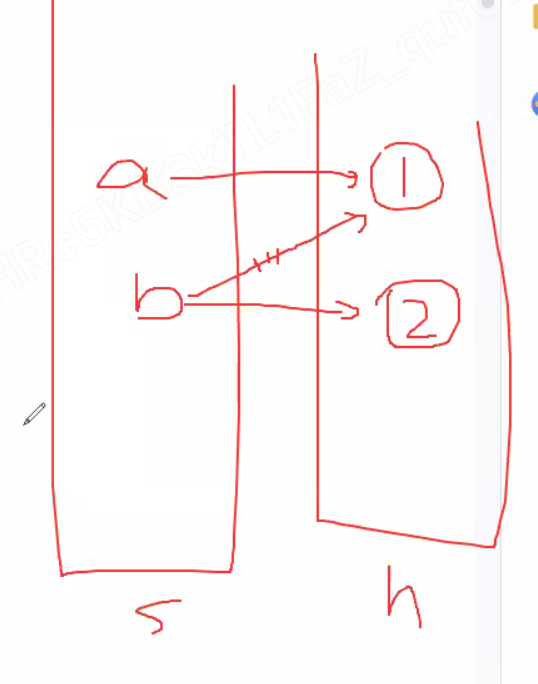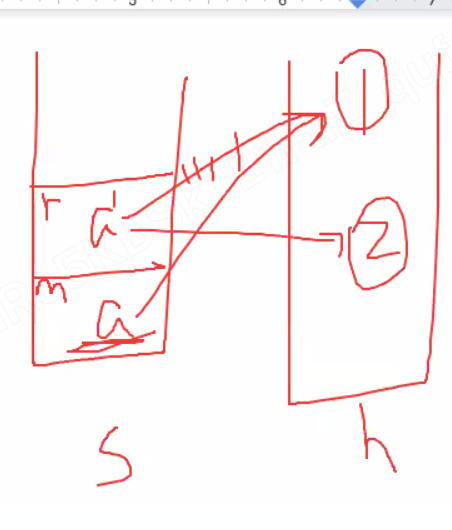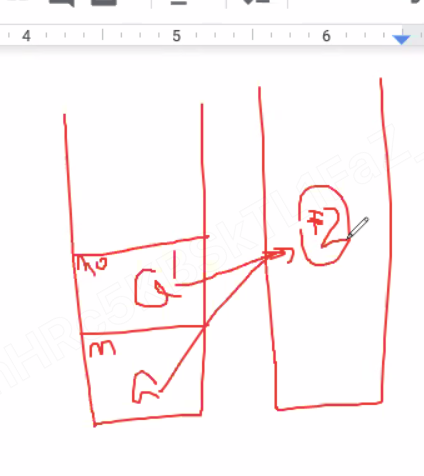Common problem
Java pass-by-value¶
- reassignment
int[] a = new int[]{1}; // a is on stack
int[] b = a; // b still store on stack
b = new int[]{2};
// if print a, it will output 1

int[] a = new int[]{1}; // a is on stack
int[] b = a; // b still store on stack
b[0] = 2;
// if print a, it will output 2
- pass in as parameter
// anything "new" in function will stay local and will not modify the outter scope variable
public void reassign(int[] array) {
array = new int[]{2};
}
public void modify(int[] array) {
array[0] = 2;
}
public int[] returnArray(int[] array) {
array = new int[]{2};
return array;
}
public void foo(int[] array) {
array[0] = 2; // output this value 2
array = new int[]{3};
array[0] = 4;
}
public void foo2(int[] array) {
array[0] = 2;
array[0] = 4; // output 4
array = new int[]{3};
}
public static void main(String[] args) {
int[] array = new int[]{1};
reassign(array); //what’s the result? 1
modify(array); //what’s the result? 2 (ignore previous statement)
array = returnArray(array); //what’s the result? 2 (ignore previous statement)
}


debug¶
public class Solution {
public void reverse(int[] array) {
int[] array1 = new int[array.length];
for (int i=0; i<array.length; i=i+1) {
array1[i]=array[array.length-1-i];
}
array = array1; // Write your solution here
}
Problem: Give an array list of integer, calculate the sum of squares of all its elements. Note: return 0 if the list is null or empty.
Example: list = {1,2,3} → returns 14 (14=11+22+3*3)
public class Solution {
public int sumOfSquare(List<Integer> list) {
if (list == null || list.isEmpty()) {
return 0;
}
int sum = 0;
for (int i = 0; i < list.size(); i++) {
sum += list.get(i) * list.get(i);
}
return sum;
}
Misc¶
- String s = 4 + "aa"; // will print 4aa, because 4.toString() + "aa", however it won't work in c++
- low -> high precision: will cast implicitly (no need to add (long) for example).
- high -> low precision: need explict cast
Last update:
August 17, 2020